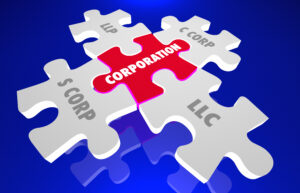Starting a New Business? – Be Prepared for Taxes

Starting and owning a new business can be very exhilarating but it can also be very stressful. There are so many important things to keep track of and dozens of tasks that need your attention. One thing that can get lost in the shuffle is your taxes.
First, the taxes you owe and how much you will have to pay will depend greatly on how you structure your business: whether it be a corporation (S or C), a partnership, a sole proprietorship or a Limited Liability Corporation (LLC). If you’re not sure which one is right for you, we’ll be happy to explain the differences and help you set up the best structure for your needs.
As a business owner you could be subject to several different types of taxes, including income taxes, employment taxes, self-employment taxes and excise taxes. You are responsible for any of these taxes that are not automatically deducted. That means you have to pay quarterly tax installments. If you fail to do this you could end up being penalized and pay even more, including interest.
As a business owner you’re still not done. These are just the federal taxes that you need to track. You also need to make sure you are up-to-date on all state and local business taxes as well. Owning a business can certainly be exciting but don’t forget about your taxes along the way. The experts at GROCO can help. Call us at 1-877-CPA_2006 or click here.
For more information on tax tips when starting your own business click here
http://www.palmbeachpost.com/feed/business/consumer-advice/dont-let-taxes-kill-your-new-business/fCMXWF/
Tax S-corporation
Saving Taxes with an S Corporation An S corporation election allows the shareholders to preserve the benefit of limited liability for the corporate form while at the same time being treated as partners for federal income tax purposes. Ever wondered why so many small businesses operate as an S corporation? Simple. An S corporation saves…
Sec1045 Partnerships
Sec1045 Partnerships This document contains final regulations relating to the application of section 1045 of the Internal Revenue Code (Code) to partnerships and their partners. These regulations provide rules regarding the deferral of gain on a partnership’s sale of qualified small business stock (QSB stock) and a partner’s sale of QSB stock distributed by a…
Sec179 Businessequipment
Updated: 11/12/10 Most new business equipment can be either depreciated over its useful life or expensed immediately under Internal Revenue Code Section 179. The maximum deduction is based on the following schedule for the date in which the tax year begins. Each 1040, whether Single or Joint, is limited to one maximum. 179 expenses passed…
Sec1244 Small Business Stock Sales
Sec1244 Small Business Stock Sales Section 1244 of the Internal Revenue Code, the small business stock provision, was enacted to allow shareholders of domestic small business corporations to deduct as ordinary losses, losses sustained when they dispose of their small business stock. In order to receive this beneficial treatment, the Code prescribes specific requirements for:…



